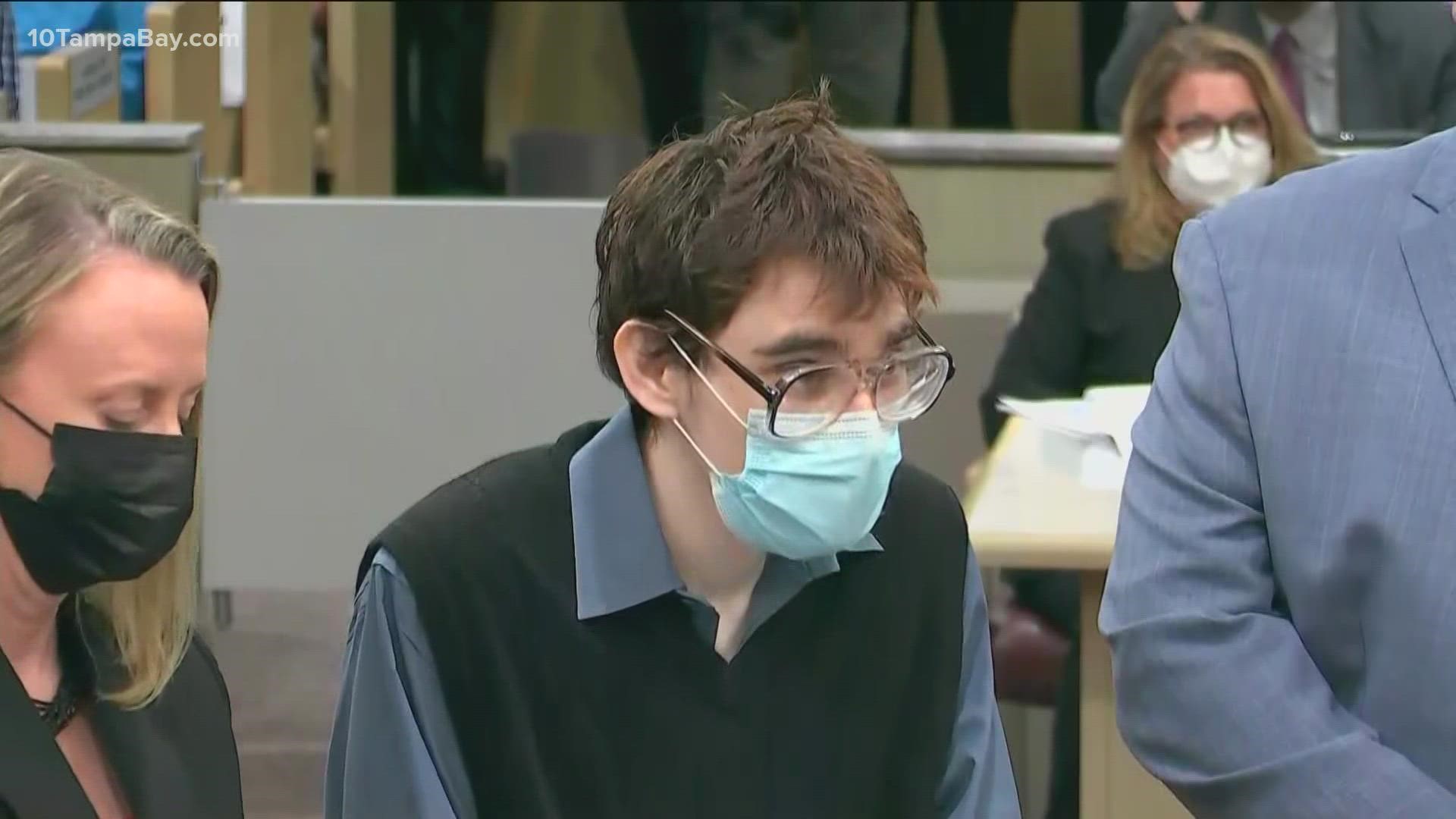FORT LAUDERDALE, Fla. — The shooter who killed 17 people in the 2018 massacre at Marjory Stoneman Douglas High School pleaded guilty Wednesday on all counts.
Fourteen students and three staff members died on that Valentine's Day shooting in Parkland. On Wednesday, 23-year-old Nikolas Cruz admitted his guilt as a judge read their names aloud, one by one.
He also pleaded guilty to 17 counts of attempted murder.
The guilty plea sets up a penalty phase where Cruz will learn whether he will spend the rest of his life in prison or be sentenced to death. If prosecutors go forward with seeking the death penalty, a jury will ultimately make the final decision in a trial the judge hopes will begin in January.
If Cruz is sentenced to life in prison, he will not have the opportunity for parole, according to Florida law. That law has been in place for nearly 40 years when in 1983 sentencing guidelines were enacted that effectively abolished parole in the state.
In order for Cruz to receive the death penalty, the jury must reach a unanimous decision.
Florida statute 775.082 law says that a person convicted of a "capital felony" will face either the death penalty or life in prison without parole.
Crimes that are punishable by the death penalty include first-degree murder. Cruz pleaded to 17 counts of first-degree murder.
RELATED: 'Remember the victims': Parkland parent asks people to remember his daughter amid guilty plea news
Cruz was 19 years old during the Valentine's Day 2018 shooting and was a former student at Marjory Stoneman Douglas High School.
An hour after the attack, Cruz was arrested with an AR-15 semiautomatic rifle.
His lawyers have repeatedly offered to plead guilty in return for a guaranteed sentence of life in prison, but prosecutors have refused to drop their pursuit of the death penalty.
Following the massacre, it became apparent law enforcement, including the FBI, had missed several red flags in the months leading up to the shooting.
Records show Broward County deputies got at least 18 calls warning them about Cruz from 2008 to 2017, including that "he planned to shoot up the school" and other threats of acts and violence.
The FBI also reportedly failed to act on crucial information about Cruz from the bureau's tipline prior to the shooting.
The plea brings some closure to a South Florida community three years after the attack that sparked a nationwide movement for gun control.
In the aftermath of the shooting, Parkland student activists formed March for Our Lives, a group that rallied hundreds of thousands around the country for tighter gun laws, including a nationally televised march in Washington, D.C.
These are the names of the 17 people killed during the Parkland school shooting:
Alyssa Alhadeff, 14
Scott Beigel, 35
Martin Duque Anguiano, 14
Nicholas Dworet, 17
Aaron Fies, 37
Jaime Guttenberg, 14
Christopher Hixon, 49
Luke Hoyer, 15
Cara Loughran, 14
Gina Montalto, 14
Joaquin Oliver, 17
Alaina Petty, 14
Meadow Pollack, 18
Helena Ramsay, 17
Alexander Schachter, 14
Carmen Schentrup, 16
Peter Wang, 15

